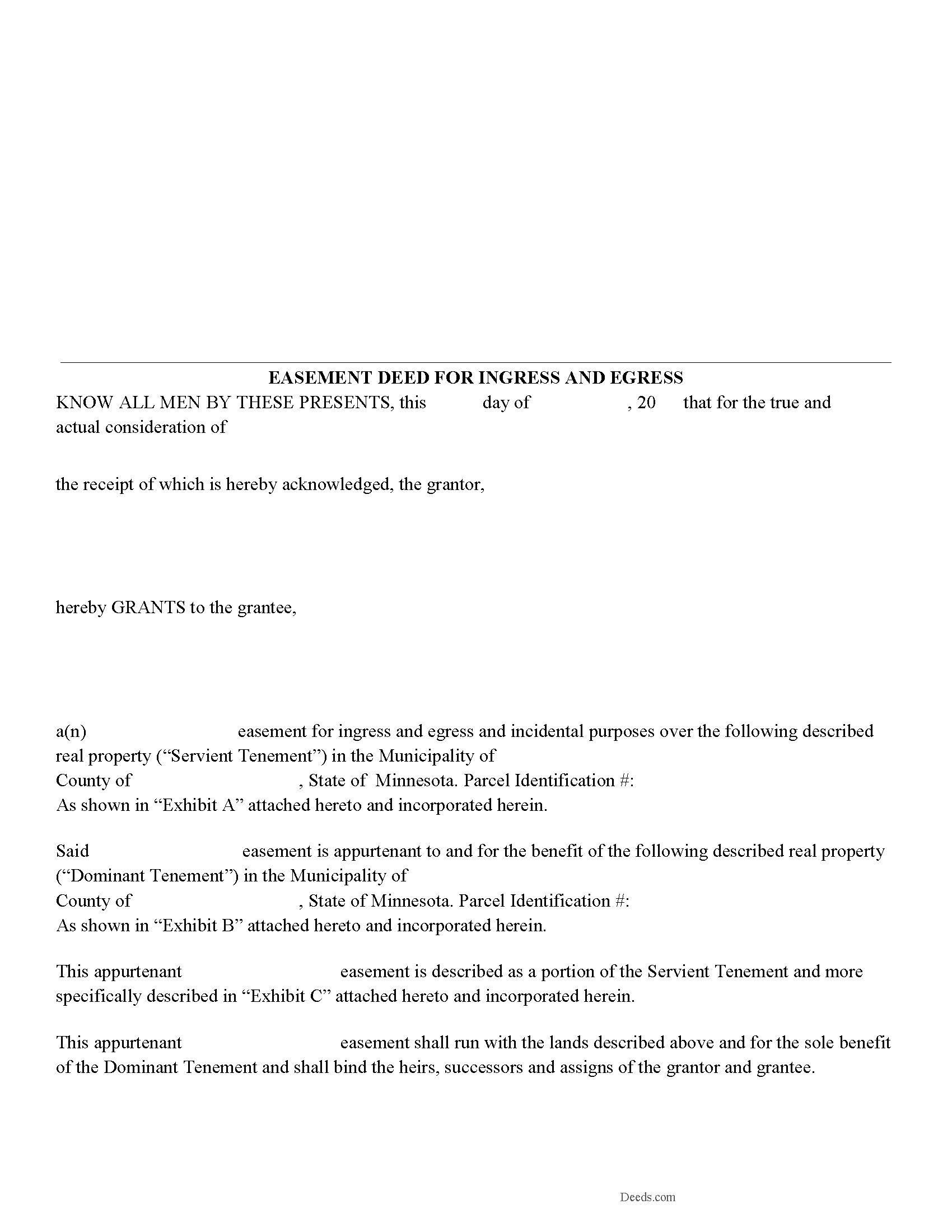Download Minnesota Easement Deed Legal Forms

Minnesota Easement Deed Overview

An easement can give one person the right to use another person's real property for a specific purpose. This non-possessory and non-ownership right is created by the easement deed. In Minnesota, a conveyance of all or any portion of real property includes any benefits and burdens of all easements, conditions, restrictions, or other servitudes validated under 507.47, except as provided in sections 500.20 and 541.023 (507.47).
A plat that has been prepared and recorded in accordance with section 505.01 of the Minnesota Statutes can be used to indicate the dedication of easements for public ways, utility easements, and drainage easements (500.01).
An easement is either appurtenant or in gross. An appurtenant easement benefits the dominant estate and runs with the land, whereas an easement in gross benefits an individual or a legal entity. Further, solar easements and wind easements can also be created under Minnesota law (500.30). These easements are granted in the same manner and with the same effect as a conveyance of an interest in real property.
In order for an instrument affecting Minnesota real estate, such as an easement deed, to be eligible for recordation, it should be executed, acknowledged by the parties executing it, and the acknowledgment should be certified. Easement deeds must contain the original signatures of the parties who execute the instrument and of the notary public or other officer taking acknowledgments (507.24). If the easement deed has been executed out of state, it is entitled to record if it is executed according to Minnesota law or according to the laws of such state.
Every conveyance of real estate that is not recorded is void against a subsequent purchaser in good faith and for a valuable consideration of the same real estate or portion thereof, whose conveyance is first duly recorded. Every instrument in Minnesota that is executed in the form of a conveyance or other form affecting standing timber, stone, ores, minerals, or other similar property, when executed and acknowledged in the manner provided for conveyances, can be recorded in the office of the county recorder where the property is situated. Such record will be notice of the contents thereof and the rights of all parties thereunder as well after as before the severance or separation of such property from the land (507.36).
(Minnesota ED Package includes form, guidelines, and completed example)